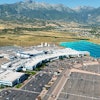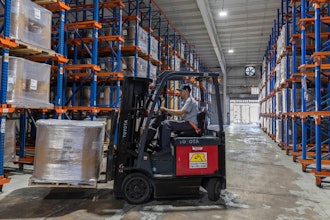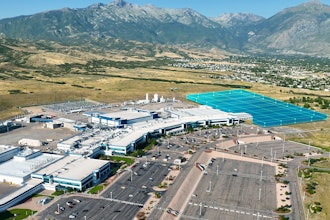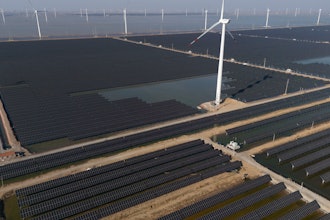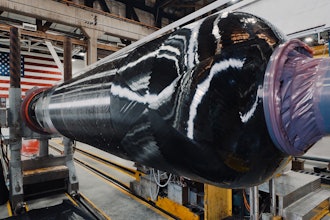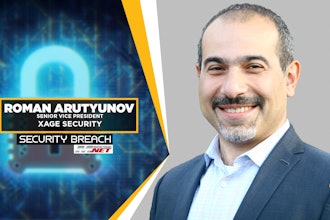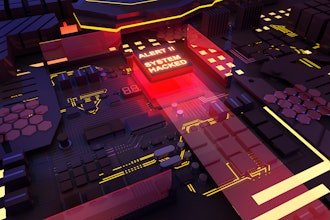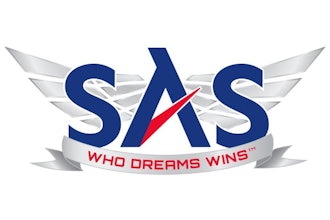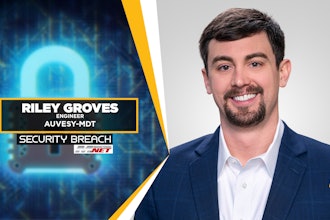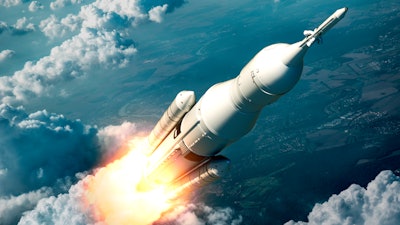
HUNTSVILLE, Ala. (AP) — Donald Trump has only hinted at the future of NASA. But his campaign suggestions — more deep space exploration, less Earth science — seem to bode well for Alabama and for Marshall Space Flight Center.
The center's 6,000-person workforce is a key part of Huntsville's economy. And deep space exploration plays to Marshall's strengths as NASA's propulsion center and manager of the Space Launch System (SLS), the new rocket capable of going beyond Earth orbit to deep space.
NASA employees here say they heard the question often over the holidays: "How do you feel about Trump?" One employee's answer seemed to stand out: "We're certainly better positioned than last time."
The last time the White House changed occupants, incoming President Barack Obama canceled the NASA rocket program being developed in Huntsville. Constellation, as it was called, was designed for America's space goals under Obama's predecessor, former President George W. Bush. It was to enable a permanent moon base to support missions to "Mars and other destinations."
Constellation employed 500 NASA civil service workers and nearly 2,000 contractor employees in Huntsville. In the budget fight that followed, only the NASA employees kept their jobs.
Obama cut Constellation from his 2010 budget after a study panel found it behind schedule and over-budget. That finding fit with Obama's preference to spend money on Earth science, including climate change research, and developing commercial space companies like SpaceX and Orbital ATK. Those companies are now sometimes referred to as "new space."
During Obama's two terms, SpaceX would receive more than $4 billion in government funding to help develop a rocket and capsule that now supplies the International Space Station and will eventually fly astronauts there.
But a Senate led by Sen. Richard Shelby and other NASA-state lawmakers forced Obama to also fund a sort of Constellation-light program NASA named the Space Launch System. The SLS booster and Orion capsule are being built by what are called "legacy" space companies such as Boeing and Lockheed Martin.
"It seems to me the re-election of Sen. (Richard) Shelby will have more impact on Huntsville than Mr. Trump," George Washington University space policy expert John Logsdon said two days after the election.
Logsdon spoke before Sen. Jeff Sessions emerged as Trump's choice for Attorney General and one of his closest advisers. Sessions even has the power to influence NASA's next administrator, according to the Wall Street Journal.
During the campaign, Trump surrogate and former Congressman Robert Walker said Trump wants NASA focused on deep space again, not climate science. Talk started about returning to the moon as a first step to Mars. Now, America's government and commercial space workforce waits to see, first, who Trump chooses to lead NASA. That will be a clue to the agency's direction for the next four years.
Candidates mentioned for the job include a congressman, Rep. Jim Bridenstine (R-Okla), who favors a return to the moon; former NASA associate administrator Dan Cooke; and former NASA Administrator Mike Griffin. They also like deep space missions.
Since the election, the space press has also closely followed the appointments to Trump's NASA transition team. Early reports said Sessions had tilted its makeup toward deep space and the projects NASA in Alabama does best. More recently, advocates for "new space" got Trump's ear and were added to the transition team for "balance."
As for Trump, space isn't a priority yet. He tweeted during the campaign that he was "very sad to see what @BarackObama has done with NASA. He has gutted the program and made us dependent on the Russians." That was a reference to NASA having to pay for rides to the space station aboard Russia's Soyuz rocket.
But Trump also told a young boy who asked about NASA during a town hall that, "Right now, we have bigger problems - you understand that? We've got to fix our potholes."
The agency's future is a question with three parts: What will be its mission under Trump? Who will decide? And who will provide the rockets, probes, and crew quarters for that mission? The first two questions are about national strategy; the third will essentially be a fight over government funding. Here's a fourth question to consider as Trump's NASA plan unfolds. Will a return to the moon, even permanently, excite the young people now dubbed "the Mars generation"?
Huntsville attorney Mark McDaniel was on the NASA Advisory Council when George W. Bush was president. He says Bush's old plan might make a good new plan.
"I personally think deep space is something the government should do," McDaniel said, noting that the moon is deep space. "We talked about that when I was on the Advisory Council. The key word (in Bush's plan) was 'beyond.' We were going to the moon, Mars and beyond.
"If you go back and it's in preparation for going to Mars, an asteroid or beyond Mars, that's great," McDaniel said. "We as a nation have to do things that have never been done before."If you say we're just going back to the moon," McDaniel said, "been there, done that."



